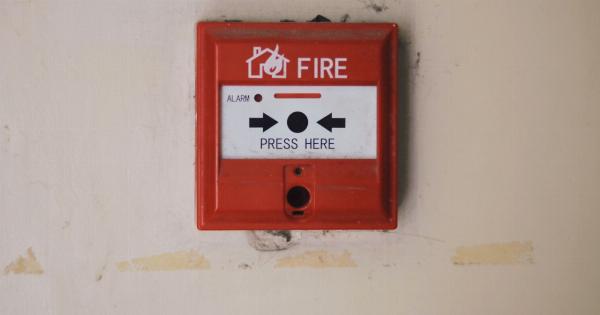Psychopathy is a condition characterized by a lack of empathy, guilt, and remorse, as well as manipulative and antisocial behavior. While psychopathy is often associated with adults, there is growing evidence that it can manifest in children as well.
Early identification of psychopathic traits in children is crucial for their future well-being and the safety of others. In this article, we will explore the early warning signs of psychopathy in kids and provide guidance on how to recognize and address these symptoms.
Understanding Psychopathic Traits
Before delving into the warning signs, it is essential to familiarize ourselves with the key traits associated with psychopathy in children:.
1. Lack of Empathy: Children with psychopathic tendencies may struggle to understand or care about others’ feelings.
2. Superficial Charm: They may possess an overt charm and charisma, often used to manipulate and deceive others.
3. Aggressive Behavior: Frequent displays of aggression, both physical and verbal, are common in psychopathic children.
4. Impulsiveness: Children with psychopathy may have difficulty controlling their impulses, leading to impulsive or reckless behavior.
5. Lack of Remorse: They may show little or no remorse for their actions, even when they have caused harm to others.
Recognizing Early Warning Signs
Now that we have an understanding of psychopathic traits, let’s explore the early warning signs that may indicate the presence of psychopathy in children:.
1. Cruelty to Animals
A child showing extreme cruelty to animals, such as intentionally hurting or killing them, may be exhibiting a concerning behavior pattern. This lack of empathy and disregard for the suffering of others is often a precursor to psychopathic tendencies.
2. Manipulative Behavior
Children with psychopathic traits may display manipulative behavior from an early age.
They may lie, deceive, or use their charm to manipulate others into getting what they want, showing a remarkable lack of empathy for the feelings or well-being of those around them.
3. Callousness
A child’s inability to show genuine emotions, particularly in situations where most children would display empathy or concern, can be an early warning sign of psychopathy.
This emotional shallowness and callousness are often observed in psychopathic children.
4. Lack of Social Bonds
Children with psychopathic tendencies may struggle to form deep and meaningful relationships with others. They may lack genuine friendships and exhibit a pattern of using people for their personal gain without forming any bonds or attachments.
5. Persistent Rule Breaking
Repeated and deliberate violations of rules, norms, and boundaries can indicate a disregard for authority and a lack of conscience. Psychopathic children may engage in these behaviors without remorse or fear of consequences.
6. Absence of Fear
Children diagnosed with psychopathy may display a reduced sense of fear or danger. They may engage in risky activities without considering the potential consequences, as they lack the typical fear response that would deter most children.
7. Lack of Peer Empathy
Psychopathic children often struggle to understand or empathize with their peers’ feelings. They may exploit their peers for personal gain, displaying a blatant disregard for others’ emotions.
8. Early Warning Signs in Toddlers
Even in toddlers, certain behaviors may offer indications of psychopathic tendencies. These early warning signs include a severe lack of guilt, aggression towards others, persistent lying, and a lack of affection or interest in others.
9. Behavioral Problems in School
Children with psychopathic traits frequently face behavioral issues at school.
They may be aggressive towards classmates or teachers, consistently break rules, show a lack of respect for authority figures, and lack motivation or interest in academic activities.
10. Lack of Remorse or Guilt
A common characteristic of psychopathy is the absence of guilt or remorse for harmful actions.
Children showing a consistent lack of remorse for hurting others, whether physically or emotionally, may be displaying a warning sign of psychopathic tendencies.
Addressing and Seeking Help
If you notice any of these warning signs in a child, it is crucial to seek professional help. Early intervention and appropriate psychological support can make a significant difference in managing and addressing psychopathic traits in children.
Psychologists and mental health professionals can conduct thorough assessments to determine if the child exhibits psychopathic traits and develop tailored interventions.
Additionally, involving parents and teachers in the process can support the child’s development and ensure consistent guidance and supervision.
Conclusion
Recognizing the early warning signs of psychopathy in children is vital for ensuring their well-being and the safety of those around them.
By understanding the key traits and symptoms, parents, teachers, and mental health professionals can intervene early and provide the necessary support and guidance to help these children lead healthier and more fulfilling lives.

















